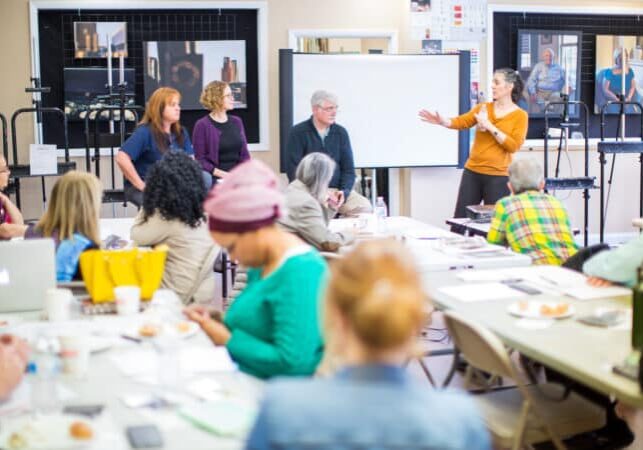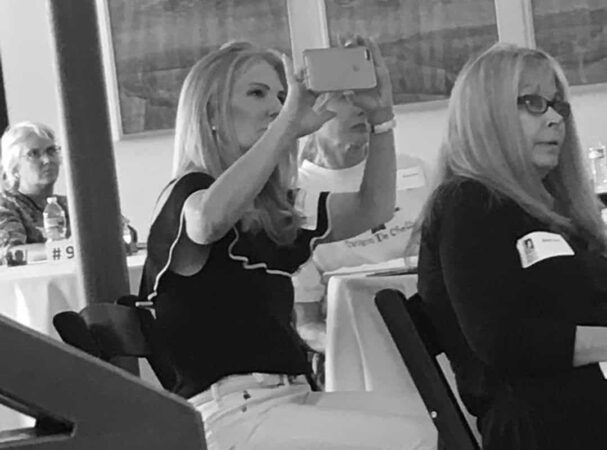Art is a business, and artists should run it. CHF champions working artists and creative professionals and self-empowered, self-actualized, self-sustaining entrepreneurs. That only works if artists, art patrons, art collectors and buyers, and others in the art industry write letters, op-eds, letters to the editor, and host events that discuss, champion, and otherwise address the gap in our creative economy, the missing ingredient of creative intelligence in our collective problem solving, and the incredible importance of a thriving creative culture.
Key Talking Points
Access to Training
Working artists and creative professionals are routinely shortchanged on the basic tools and information other professionals take for granted. Business schools don't recruit artists, and art schools don't teach business in-depth. The result is dependency, a less robust creative culture, and a dearth of creative intelligence in addressing the problems all of us share.
Strong Peer Networks
Artists are routinely told to stay in their studios and make things, while others decide what's important and what their vision is worth. Collaboration on business growth is discouraged and working artists are even penalized for running their own businesses, taking control of their marketing, or developing and trumpeting their individual brand.
Economic Justice
Roughly half of creative income does not go to the creators, and artists are routinely encouraged to look for more funding while the industry takes the lion's share of their efforts or asks them to work on spec or for free. Meanwhile, art in general is devalued as a commodity, when in fact it's central to a robust culture and to human existence.
Intellectual Property
For creative work, licensing arrangements disproportionately favor the buyer and leave the creator without a sustainable income from repeat or extended uses of their work. Contracts are structured unevenly and artists are forced to view their own works as disposable and continually re-invent to stay ahead.

It Doesn't Have to Stay Like This
By offering substantive business training, developing supported peer networks, instilling legal and financial best practices, and shifting the industry to honor and reward its creative center—the producers of art and creative enterprise, we can ensure the meme of the "starving artists" is replaced with the expectation of the "middle class artist". Instead of chasing elusive fame for a few, we can achieve practical abundance for the many.

